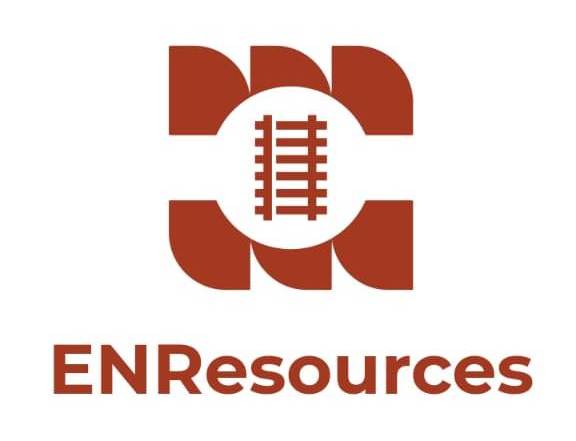
Photo by Scott Graham on Unsplash
Introduction
Dissertation research is a crucial component of academic endeavors, enabling scholars to delve into specific subjects and contribute valuable knowledge to their respective fields. However, beyond the academic realm, there lies untapped potential in the commercialization of dissertation research outcomes. By transforming these research findings into tangible products or services, numerous socio-economic benefits can be realized. This article discusses the top 10 advantages of commercializing dissertation research outcomes and highlights their potential impact on society and the economy.
1. Economic Growth
Commercializing dissertation research outcomes can serve as a catalyst for economic growth. By converting research into innovative products or services, new industries are developed, leading to job creation and increased capital flow. According to a study conducted by the National Bureau of Economic Research, commercialization of research outcomes can contribute significantly to GDP growth, driving overall economic development.
2. Technological Advancements
Dissertation research often involves cutting-edge technologies and methodologies. By commercializing research outcomes, these advancements can be further developed, leading to breakthrough innovations in various industries. The implementation of these technologies enhances productivity, efficiency, and competitiveness, allowing organizations to stay ahead.
3. Improved Healthcare
Many dissertation research outcomes in the medical field have the potential to revolutionize healthcare. Commercializing such research contributes to the development of new pharmaceuticals, medical devices, and treatment techniques. This, in turn, enables more effective and accessible healthcare solutions, ultimately improving public health outcomes.
4. Enhanced Education
Commercializing dissertation research outcomes in the field of education can bring significant benefits. By transforming research findings into educational tools, training programs, or online platforms, knowledge dissemination becomes more efficient and accessible to a broader audience. This ensures the wider application of research insights, ultimately enhancing educational outcomes.
5. Environmental Sustainability
Dissertation research often addresses pressing environmental issues such as climate change, renewable energy, and conservation. By commercializing research outcomes in these areas, innovative and sustainable solutions can be developed. These solutions contribute to a greener economy, reduced carbon footprint, and conservation of natural resources.
6. Job Creation
Commercializing dissertation research outcomes generates employment opportunities across various sectors. As innovative products or services are brought to the market, companies require a skilled workforce to develop, manufacture, market, and distribute these offerings. This results in job creation, reducing unemployment rates and improving economic well-being.
7. Entrepreneurship
Commercializing research outcomes encourages entrepreneurship. Doctoral candidates or researchers who venture into commercializing their own findings develop entrepreneurial skills and contribute to a culture of innovation. This entrepreneurial ecosystem stimulates economic growth and fosters further research and development activities.
8. Global Competitiveness
Commercializing dissertation research outcomes enhances a nation’s global competitiveness. By promoting the commercialization of research findings, countries can capitalize on their intellectual capital, driving economic progress. These breakthroughs foster international collaborations, attract foreign investments, and position the nation as a global leader in research and development.
9. Intellectual Property (IP) Protection
Commercialization of dissertation research outcomes reinforces the importance of IP protection. When research findings are transformed into marketable products or services, intellectual property rights must be safeguarded. This recognition incentivizes scholars to protect their work and ensures that their contributions are adequately acknowledged and rewarded.
10. Collaboration and Knowledge Exchange
Commercializing dissertation research outcomes encourages collaboration between academia and industry. This collaboration fosters knowledge exchange, establishing a symbiotic relationship between researchers and organizations. By leveraging each other’s expertise, both parties benefit from enhanced research outcomes and the translation of these findings into practical applications.
Conclusion
Commercializing dissertation research outcomes offers a multitude of socio-economic benefits. From driving economic growth and innovation to improving healthcare and environmental sustainability, the impact of transforming research into reality is substantial. Embracing the commercialization process enables the application and dissemination of research findings, resulting in a prosperous society and a thriving economy.
About the Author

Emmanuel has over 20 years of experience as a freelance research writer, project manager, and business development professional. He has a strong background in delivering high-quality research-based content across various industries. His writing style is versatile, allowing him to adapt to different subjects and formats, including academic papers, market research reports, and business proposals. You can find inspiring educational and career resources in areas like career readiness, dissertation writing, employability skills, global entrepreneurship, and much more on his blog site.
List Of References
- Horn, R. (2012). Researching and writing dissertations: a complete guide for business and management students. London: Chartered Institute Of Personnel and Development.
- Mark Stephan Felix and Smith, I. (2019). A practical guide to dissertation and thesis writing. Newcastle Upon Tyne, England: Cambridge Scholars Publishing.
- Naoum, S. (2012). Dissertation Research and Writing for Construction Students. Routledge.
- Naoum, S.G. (2019). Dissertation Research and Writing for Built Environment Students. Routledge.
- Polonsky, M.J. and Waller, D.S. (2005). Designing and managing a research project: a business student’s guide. Thousand Oaks, Calif.: Sage Publications.
- Roberts, C.M. (2014). The dissertation journey a practical and comprehensive guide to planning, writing, and defending your dissertation. Thousand Oaks Corwin Press.


